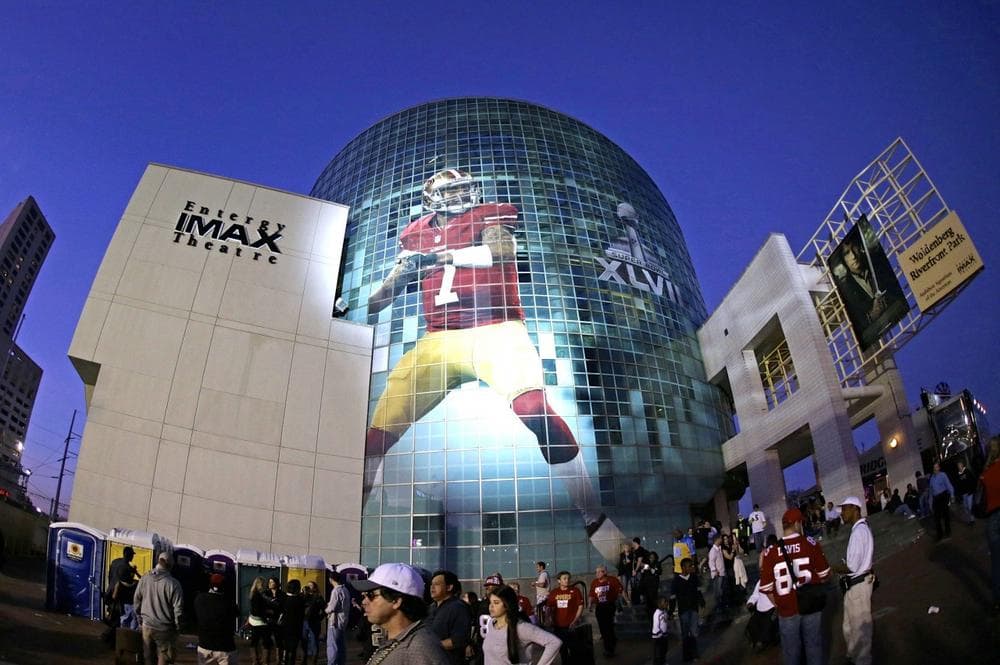Advertisement
Sports And Politics
ResumeThe day after the Super Bowl, politics and mega-sports. Imperial sports.

The lights went out, but the game went on – eventually. Baltimore Ravens over the San Francisco 49ers in Super Bowl 47. High action on the field at the Superdome. And all kinds of action all around the play, the football.
There were the kids from Newtown, Connecticut sweetly singing. There was Beyonce, all strong grace and sex and curls. There were the ads, for Oreos and beer.
And all over and around, big politics. Oprah speaking up for vets. Paul Harvey for farmers. A Raven’s linebacker for gay marriage. President Obama, before the kickoff.
This hour, On Point: big sports and big politics.
-Tom Ashbrook
Guest
Dave Zirin, sports editor for The Nation magazine. His new book is "Game Over: How Politics Has Turned the Sports World Upside Down."
From Tom's Reading List
The Nation "Super Bowl XLVII is being billed as the Harbaugh Bowl: the battle between Jim and John Harbaugh, head coaches, respectively, of the San Francisco 49ers and the Baltimore Ravens. It will also be played by two NFL teams connected directly and indirectly to the struggles for LGBT rights. Read that last sentence again, and appreciate for a moment how far fighters for LGBT equality have traveled."
The New Republic "Zirin’s latest book, Game Over: How Politics Has Turned the Sports World Upside Down, is a more explicitly left-wing, twenty-first century incarnation of the Lipsyte project. It hovers over the wide world of sports, galloping liberally from the players to owners, from economic inequality to gender inequality. While the chapters work as stand-alone pieces, Zirin’s central argument is that politics, having dominated sports during Lipsyte’s day, “has returned with a vengeance” following “the apolitical 1990s.” And he insists that “the stakes couldn’t be higher.”
The New York Times "Gearing up for the 2016 Olympic Games to be held here, officials celebrated plans for a futuristic “Olympic Park,” replete with a waterside park and athlete villages, promoting it as 'a new piece of the city.' There was just one problem: the 4,000 people who already live in that part of Rio de Janeiro, in a decades-old squatter settlement that the city wants to tear down. Refusing to go quietly and taking their fight to the courts and the streets, they have been a thorn in the side of the government for months."
Excerpt of "Game Over"
This program aired on February 4, 2013.